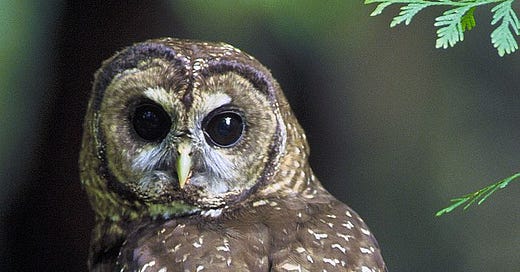9 November 2021. Sustainability | Net Zero
What citizenship means for sustainability; what it really takes to get to Net Zero by 2050
Welcome to Just Two Things, which I try to publish daily, five days a week. (For the next few weeks this might be four days a week while I do a course: we’ll see how it goes). Some links may also appear on my blog from time to time. Links to the main articles are in cross-heads as well as the story.
#1: What citizenship means for sustainability
For the duration of COP26–so probably until the end of this week—the London Review of Books has placed a small number of pieces in front of its paywall.
One of these is a 2004 article by the Indian economist Amartya Sen, who interrogates the idea of sustainable development, starting with the 1987 Brundtland definitition:
The Brundtland Report defined sustainable development as meeting ‘the needs of the present without compromising the ability of future generations to meet their own needs’.
Well, he wonders if this focus on ‘needs’ is perhaps a little narrow.
Seeing people in terms only of their needs may give us a rather meagre view of humanity. To use a medieval distinction, we are not only patients, whose needs demand attention, but also agents, whose freedom to decide what to value and how to pursue it can extend far beyond the fulfilment of our needs. The question can thus be asked whether environmental priorities should be seen in terms also of sustaining our freedoms.
The other argument that plays out repeatedly in sustainability discussions is about the maintaining the standards of living of future generations. This is associated, for example, with the work of the economist Robert Solow. Again, Sen is impatient with this argument:
Sustaining living standards is not the same thing as sustaining people’s freedom to have – or safeguard - what they value and to which they have reason to attach importance. Our reason for valuing particular opportunities need not always lie in their contribution to our living standards.
(Spotted owl: photo by John and Karen Hollingsworth, via Wikipedia. US Fish and Wildlife Service, Public Domain)
In turn, this links to a discussion of our responsibility to other species, and the rationale for that responsibility: :
To illustrate, consider our sense of responsibility towards the future of other species, not merely because – nor only to the extent that – their presence enhances our own living standards. For example, a person may judge that we ought to do what we can to ensure the preservation of some threatened animal species, say, spotted owls. There would be no contradiction if that person were to say: ‘Our living standards are largely – or completely – unaffected by the presence or absence of spotted owls, but I strongly believe that we should not let them become extinct’.
This is as much to do with our relative power as species as anything else. Sen uses this as a way to reflect on what is involved in being citizens when it comes to environmental policy.
First, as above, it involves being agents, not patients: “It involves the ability to think, value, and act.”
Second, this implies that participation is a value—because otherwise agency is incomplete.
Third and fourth, he argues about the role of freedoms in all of this. On the one side, he suggests that
if environmental objectives are pursued by means of procedures that intrude into people’s private lives, the consequent loss of freedom must count as an immediate loss.
On the other: that the focus on living standards is too broad to pay appropriate attention to “specific freedoms”. Of course, Sen’s most famous book is called Development as Freedom, and he’s always had a concern for the ethics that are bound up with economics. This is the way that he illustrates this final point:
In the ecological context, consider a deteriorating environment in which future generations are denied the opportunity to breathe fresh air (because of especially nasty emissions), but where those future generations are so very rich and so well served by other amenities that their overall standard of living may well be sustained... But that overlooks the need for anti-emission policies that could help future generations to have the freedom to enjoy the fresh air that earlier generations enjoyed.
#2: What it really takes to get to Net Zero by 2050
Sometimes I don’t have to write screeds here to share a point. The Juice Media is based in Melbourne, Australia, and specialises in making ‘honest government ads’—what governments would say if they weren’t busy pretending that nothing is going to have to change.
This is their contribution to the climate change debate—or more precisely, to what ‘Net Zero by 2050’ actually means. I admired the way that it tweaks almost all of the cliches of television news and science along the way.
But: I also need to put a language warning on this. It is vulgar, direct, and uses lots of sexual swear words.
It’s Not Safe For Work (even with headphones on), as you can perhaps tell from the screen grab on the You Tube still below. And certainly don’t watch it in front of young kids, or if you are offended by Australian levels of profanity. (3’45”)
j2t#203
If you are enjoying Just Two Things, please do send it on to a friend or colleague.



